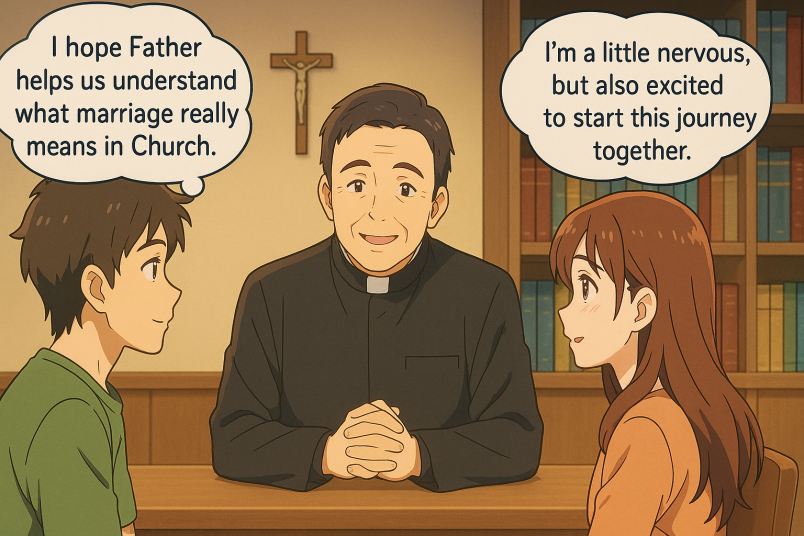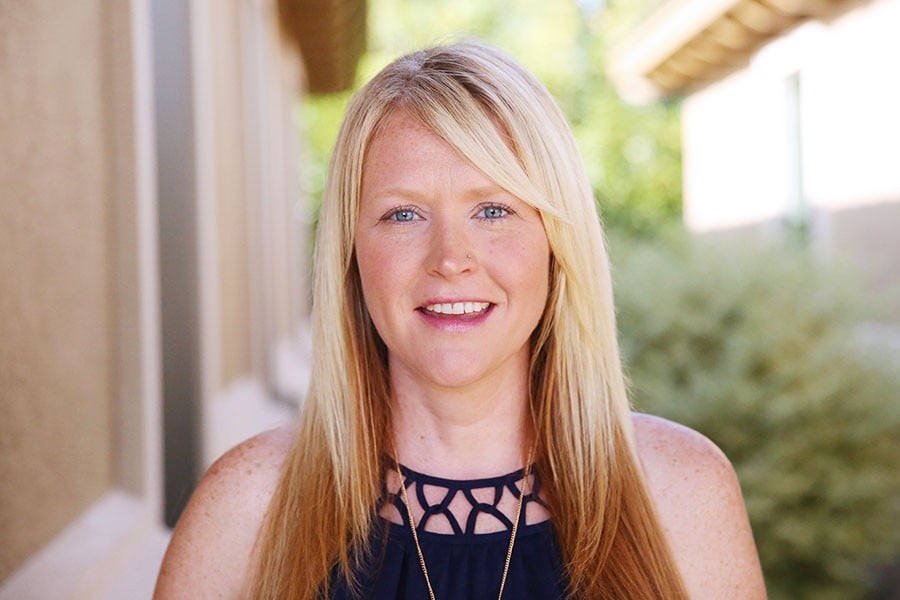15 Essential Steps in Catholic Marriage Preparation to Know

Heal & Grow Daily for a Happier Relationship
Subscribe FREEKey Takeaways
Marriage.com AI Quick Summary
Marriage in the Catholic Church is not just about the wedding day—it’s about preparing your heart, mind, and soul for a lifelong promise. Before standing at the altar, couples are gently guided through a journey that helps them reflect on love, faith, and commitment.
Some moments feel practical, others deeply spiritual, but each one is designed to build a foundation that can weather both joys and trials.
You may find yourself asking, “Are we ready for this?” or even smiling at the thought of what’s ahead… and that’s perfectly normal!
Catholic marriage preparation becomes less about checking boxes and more about discovering the beauty of walking together—with God at the center of it all.
What is Catholic marriage preparation?
Catholic marriage preparation is often called Pre-Cana, inspired by the wedding feast at Cana, where Jesus blessed a marriage with His presence. It’s more than just a program—it’s a time of learning, reflecting, and growing together as a couple.
You’ll talk about faith, love, communication, and the real-life responsibilities that come with building a life side by side. Some parts may feel simple, others a little challenging, but all of them point back to the sacred covenant you’re entering.
A study examined the sacrament of marriage in the Catholic Church against the culture of today of temporariness, using theological, canonical, and content analysis methods. The findings show marriage as a lasting covenant that resists temporary trends, highlighting fidelity, responsibility, and generosity.
In many ways, marriage preparation in the Catholic Church is about giving couples the tools to begin married life with peace and purpose.
-
Why is marriage preparation required in the Catholic Church?
Marriage preparation is required in the Catholic Church because marriage is more than a celebration—it’s a sacred covenant. The Church hopes couples enter this lifelong promise with clarity, faith, and readiness.
Preparation offers guidance, honest conversations, and spiritual grounding so love can grow stronger, even through life’s inevitable challenges.
15 essential steps in Catholic marriage preparation to know
Preparing for Catholic marriage is about much more than planning a ceremony—it’s a journey that helps couples reflect, grow, and enter into a lifelong covenant with love and faith.
Some steps may feel practical, while others touch the heart and spirit in deeper ways. Each part is designed to strengthen your bond, prepare you for the responsibilities of married life, and remind you that God walks with you both.
1. Attend premarital counseling
Many of the issues Catholics face regarding their marriages are the same for non-Catholic couples.
But before getting married in a Catholic church, there is mandatory counseling or Catholic marriage preparation programs that the couple must attend, with proof of attendance going back to the officiating priest.
Counseling can come in the form of retreats, being sponsored by another couple within the Church, or a traditional counseling/seminar format.
Counselors will discuss the biblical methods of handling disagreements, money, communication, and how you should be treating each other. And these are meant to help you understand and establish a strong foundation for your marriage.
Here’s how it goes:
- Attend sessions or retreats led by the Church.
- Learn practical tools for communication, money, and conflict.
- Use the time to reflect on your relationship honestly.
2. Natural family planning
Catholic doctrine frowns upon the use of artificial birth control (condoms, the pill, abortions, etc.). The belief is that marriage is a means of procreation, and any sexual activity should be for that end only.
Any premarital counseling will include this conversation with the officiating priest and the class counselors about natural family planning and Catholic rules regarding conception and raising children.
In September 1993, Manchester hosted a follow-up to the Rio Earth Summit, where Catholic opposition to birth control was debated. Studies now show natural family planning is precise, inexpensive, side–effect–free, and, with motivation, as effective as other contraceptives—even among poor communities.
In this, you will be taught natural ways of having control over your procreation by informing you about human sexuality and bodily functions, as per Catholic doctrine.
Here’s how it goes:
- Learn Church teachings on sexuality and openness to life.
- Understand natural rhythms and responsible planning.
- Approach family planning with prayerful reflection.
3. Effort is required
You are entering into what is expected to be a life-long commitment in the eyes of the Church.
If you are a practicing Catholic, you already know that the Church frowns upon divorce. You have to continue to put forth the same effort in your marriage as you did when dating.
Take some time to be alone together away from the routine; go on dates, hold hands, always make time for each other, and show affection. It doesn’t have to be extravagant; just small gestures each day will be enough to keep a strong connection.
Here’s how it goes:
- Make consistent time for one another.
- Keep showing affection daily, in simple ways.
- Protect your bond with effort and patience.
4. Use your engagement time wisely
The Church recommends taking 6-12 months before getting married to strengthen your bond and prepare yourself. This includes the time to finish any premarital prep or Catholic marriage preparation programs, but you should also give yourself and your partner time to get on the same page.
Counseling helps, but you must also discuss important events that will come up in your lives together.
You must discuss children, careers, location changes, and finances, and you must reach compromises/decisions before entering into marriage to avoid more significant issues down the road.
If there are disagreements on anything major, the waiting period before the actual ceremony will give you the time to either iron them out or decide that you may not have a future together.
Here’s how it goes:
- Talk openly about future goals and dreams.
- Use counseling to address challenges honestly.
- Take time to decide if you’re truly ready.
5. Consider church holidays
In understanding how to get married in a Catholic church, it is important to take note of church events and holy days to ensure the availability of the Church’s premises for your Catholic church wedding.
Sunday mass or other important days of the Church could ensure that the Church might not be available for your wedding mass and ceremony. Confer with the Church you picked to fix a date that would work for both you and the Church.
Here’s how it goes:
- Check the parish calendar for holy days.
- Coordinate with your priest before setting a date.
- Be flexible with timing if needed.
6. Dress code
While going through your Catholic marriage preparation requirements, discuss whether your Church has a specific or vague dress code that they prefer the wedding party, including the bride and groom, to adhere to.
Churches are places of worship and religious importance; therefore, specific rules are usually followed to convey respect. Most churches expect decency in the way that people dress for Church.
Getting married at a Catholic church can be overwhelming, but the dress code is of specific importance. Ask the church officials for this to inform your wedding party about the dress code that they need to follow, and choose your attire accordingly.
Here’s how it goes:
- Ask your parish about clothing expectations.
- Inform the bridal party in advance.
- Choose attire that balances beauty with reverence.
7. Select the bridal party
An important part of Catholic marriage preparation is the wedding party and the specific role that certain people, such as the maid of honor and best man, play in Catholic church weddings.
Also, Catholic church marriage requirements may require the maid of honor and the best man to be of the Catholic faith. Some churches maintain this requirement, and you must confirm that before proceeding.
Here’s how it goes:
- Choose witnesses who support your faith and marriage.
- Confirm parish rules about their religious affiliation.
- Select people who will walk beside you with love.
8. Select the music
Catholic church marriages must also note and post what music they can play during the ceremony. The kind of music the Church thinks is appropriate for a Catholic wedding might be limited.
Instrumental pieces and church hymns may be your safest choice. But if you want to play something else, you should confirm what is allowed in a Catholic marriage according to your priest.
Here’s how it goes:
- Ask the parish for approved hymns and music.
- Incorporate meaningful songs that uplift faith.
- Work with your priest or choir to plan.
9. Photography rules
Thinking of capturing memorable moments from your wedding? Ask the priest first.
Catholic marriage rules may place limitations on when you can take pictures and from what positions. Certain churches may see pictures as disruptive to the serenity of the religious ceremony or only allow the photographer to stay behind a certain point.
Here’s how it goes:
- Confirm parish rules on photography early.
- Share guidelines with your photographer.
- Prioritize the sacredness of the ceremony.
10. Baptism proofs
Requirements for Catholic weddings usually include providing the Church with baptismal proofs of the bride and groom, which allows them to be approved for a Catholic wedding ceremony.
In case one of the partners in the couple is non-Catholic, the priest may be able to grant special permission for the mixed religion marriage to take place at the Catholic church premises.
Here’s how it goes:
- Request updated baptismal certificates.
- Provide any additional sacramental records.
- Ask your priest about mixed-faith permissions.
11. Premarital inventory
Another critical thing to consider is the set of documents your parish needs if you want to have a Catholic wedding.
Requirements for Catholic marriage include documents like baptism, confirmation, or communion records. It may also include proof that you or your partner are part of the parish in whose Church you want to get married.
Here’s how it goes:
- Collect and organize sacramental records.
- Provide parish registration if required.
- Keep copies ready for parish officials.
12. Location selection
Deciding on the location is vital for any wedding, especially during catholic marriage preparations.
Choose a location that makes emotional, aesthetic, or functional sense for the kind of wedding you want to have. It should also be a church where a Catholic wedding ceremony can be performed.
According to Catholic marriage rules, you can choose to have the wedding at your own Catholic parish or pick another church where a Catholic priest can perform the ceremony.
Here’s how it goes:
- Decide whether to marry in your parish or another.
- Ensure the location is approved for Catholic weddings.
- Consider both convenience and spiritual meaning.
13. Marriage, not just a wedding
A big part of Catholic marriage preparation is understanding that you are not just working towards a beautiful wedding ceremony. You are also working towards building your life together.
Each aspect of the requirements for a Catholic marriage is meant to help the couple focus on marriage’s real meaning: a long-term and loving commitment between two people.
Here’s how it goes:
- Shift your focus from one day to a lifetime.
- Discuss how you’ll grow together in faith.
- Remember, marriage is a covenant, not just an event.
14. Read up about Catholic marriages
Read. Research. Learn.
To gain more insight and understanding about Catholic weddings and marriage expectations, try to read and research details that will guide you.
You can ask your priest to provide you with reading material to address specific concerns that you and your partner might have.
Here’s how it goes:
- Seek out Catholic books, guides, or articles.
- Ask your priest for helpful resources.
- Learn together to deepen understanding.
15. Consult the Catholic couples around
Securing the help of people who have gone through similar things can be a big help in any situation, including marriage preparation.
In preparing for a Catholic marriage, you can consult couples who have had Catholic weddings and ask for tips. They can give you a realistic picture of Catholic marriage and what you must be mindful of.
Here’s how it goes:
- Talk to couples who’ve been through the process.
- Ask them for wisdom and honest advice.
- Use their experience to prepare with confidence.
Watch this video, in which Dr. Edward Sri and his wife Beth share personal insights and St. John Paul II’s wisdom on embracing a uniquely Catholic view of intimacy in marriage:
How does this preparation strengthen a marriage?
Catholic marriage preparation might feel like a long process at times, but every step carries a purpose. It’s designed not only to guide couples into their wedding day, but also to prepare them for a life together—rooted in faith, trust, and love.
- Stronger communication skills: Couples learn how to express their needs, listen with empathy, and resolve conflicts gracefully; these habits become lifelong tools for nurturing peace and connection.
- Shared spiritual foundation: Prayer, sacraments, and reflection deepen faith together; couples discover how to keep God at the center of daily life and long-term commitment.
- Practical life readiness: Discussions about finances, children, and responsibilities help couples step into marriage with clarity, ensuring both partners feel prepared for the realities of shared living.
- Commitment to lifelong love: The Church emphasizes marriage as a covenant, not a contract; couples internalize the value of fidelity, sacrifice, and perseverance, strengthening their union through challenges.
- Support from community: Guidance from priests, mentors, and fellow couples provides encouragement; knowing you’re surrounded by support helps make marriage feel less isolating and more joyful.
At its heart, preparation reminds couples that marriage is not just about two people… it’s about building a partnership anchored in love, faith, and hope.
A lifelong covenant of love
Marriage preparation is never just about paperwork, schedules, or ticking boxes—it’s about shaping the foundation for a life built on love, faith, and trust. Each step, whether practical or deeply spiritual, is meant to remind couples that they are walking into something sacred and lasting.
You may feel overwhelmed at times, but that’s natural… and even beautiful. With prayer, patience, and openness, these moments become blessings. Remember, the most meaningful Catholic marriage tips are often the simplest: keep God at the center, keep choosing each other, and let love grow stronger every day.
Getting married? Set your relationship up for long-term success.
 Tips
Tips
Write your tip or submit a video tip
All tips are reviewed before the publishing.
Share this article on
Recent Articles
Related Quizzes
Heal & Grow Daily for a Happier, Healthier Relationship
Subscribe FREE on YouTube We'd love your feedback!
We'd love your feedback!
 Expert Q&A
Expert Q&A
Ask your question related to this topic & get the support you deserve from experts.

 Reviewed By
Reviewed By


















 Thanks for your feedback!
Thanks for your feedback!